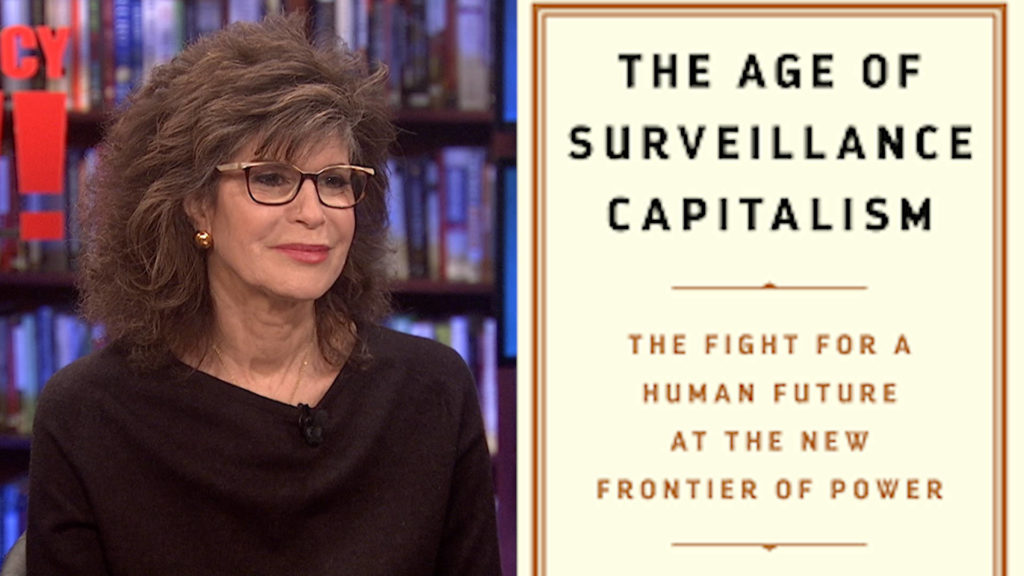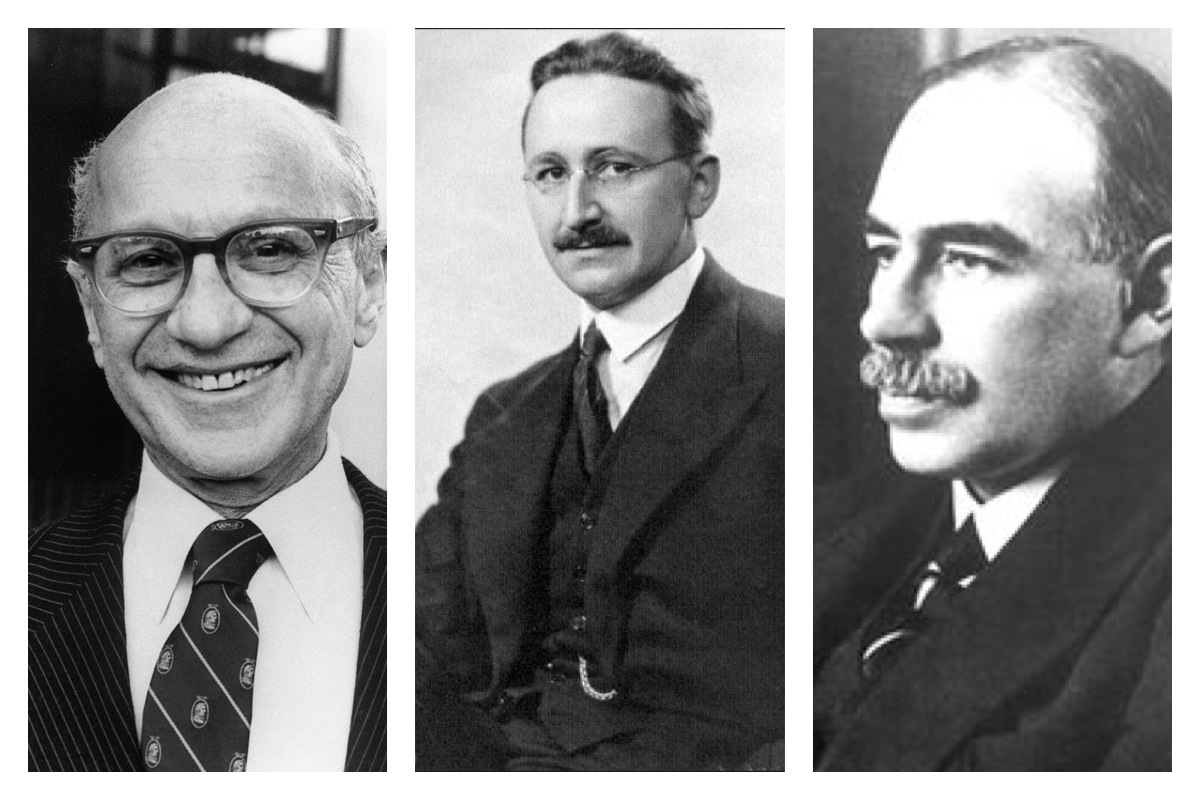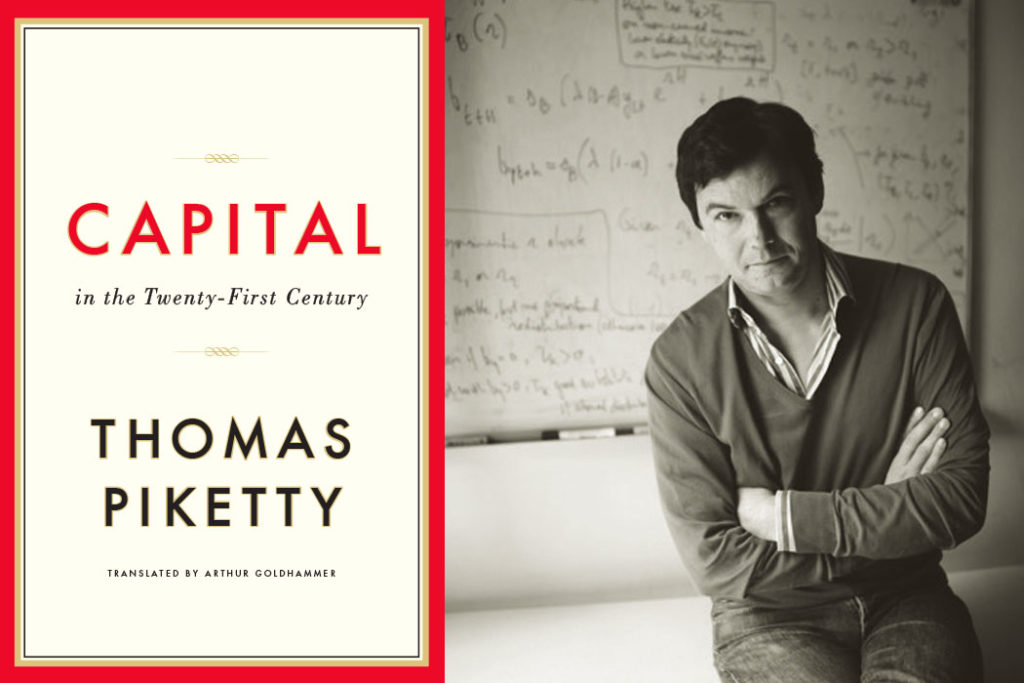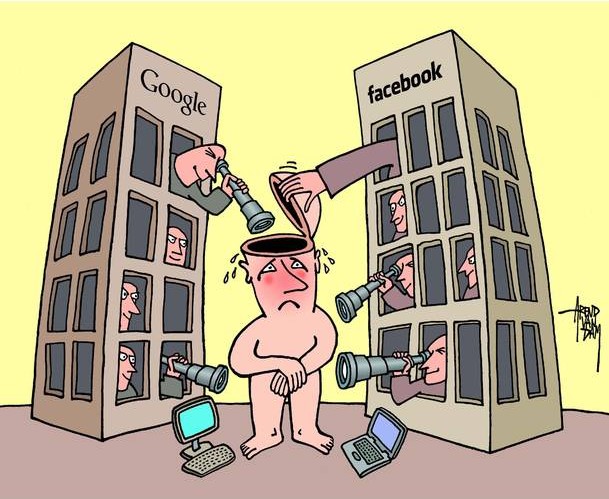Uncontrollable Corporate Megalomania Google, Facebook, etc.
The Age of Surveillance Capitalism; The Fight for a Human Future at the New Frontier of Power, Shoshana Zuboff, 2018

This is a look at the transformation of Google, Facebook, and others from their initial mission to serve their users to the exploitation of those users by selling their privacy to the highest bidder to achieve enormous personal wealth and power.
In her personal experience Zuboff describes sitting as a nineteen year old in the back of a seminar where Thomas Friedman (founder of the Chicago school of economics) instructs doctoral students who will soon run the economy of Chile after the CIA inspired coup and assassination of elected President Salvador Allende in favor of the Pinochet military dictatorship in 1973.

Thomas Friedman and Friedrich Hayek, economics as ideology and their opposite John Maynard Keynes
Zuboff also briefly alludes to debates she had at Harvard with the aging and discredited behaviorist BF Skinner, author of the novel Walden Two. She spends time in the book discussing Alex Pentland of the MIT media lab who she considers a BF Skinner intellectual successor armed with the tools Skinner could only dream of having and using. She calls Pentland a high priest of Surveillance capitalism. Pentland helps provide the intellectual justification that legitimizes instrumentarian (a new word coined by Zuboff) practices. Pentland never mentions Skinner in his work but his behavior modification goals are the same.
BF Skinner at Harvard and Alex Pentland of MIT Media Lab 

Zuboff explains why user consent through opt-in or opt-out has been rendered meaningless under Surveillance Capitalism. To read a single contract agreement in detail might take hours and with third parties almost always involved there may be 1,000 individual contracts to read and digest. If you opt out surveillance capitalists will threaten to downgrade your system and will probably still collect and distribute your information without your permission. You have no way to find out what they are doing. If you ask for the information collected, as a Belgium privacy attorney attempted to do of Google, they are unable to retrieve it for you. It is buried somewhere in a second tier of automatic computation technology. The user has no way of determining what software is currently running on your computers or smart phones or what peripherals like GPS, cameras, microphones, etc. have been usurped for external control. To add insult to injury, you will pay for the transmission bandwidth they secretly steal from you to illegally surveil your activities. If you have installed smart home devices like thermostats or security systems you have no way to know what these smart devices are observing and collecting. Your car driving behavior can be monitored with bad insurance consequences, not only by your new car, but by your smart phone. Your new car can be disabled by the finance company and its GPS location sent to the REPO people to come get your car. Then imagine advances in voice and face recognition and you start to get the terrifying idea. Then imagine all of this surveillance capability in the hands of a non democratic government like China. You can’t do anything at all without the state monitoring (and influencing) your behavior.
What does older capitalistic history teach us?
It (government interventions into free market capitalism) appeared in the trust busting, civil society, and legislative reforms of the Progressive Era. Later it was elaborated in the legislative, judicial, social, and tax initiatives of the New Deal and the institutionalization of Keynesian economic during the post-World War II era; labor market, tax, and social welfare policies that ultimately increased economic and social equality.
In fact the Bretton Woods conference of 1944 created a new world economic order based on a US-centric dollar based fixed exchange rate system, created the IMF and World Bank, and was a complete repudiation of Keynesian economics. This system worked only so long as the US remained the dominant manufacturing power, creating large trade surpluses that the US could recycle as investments. When trade reversed around 1970 and the US became a trade debtor nation, the American economy shifted from manufacture to financialization, convincing trade creditors to invest their surpluses with Wall Street, who kept inventing new and innovative ways to use the mountains of cash suddenly at their disposal. The Neoliberal contribution to all this was the erosion of government regulation of corporations and the use of IMF and Worldbank loans to vulnerable nations and colonies whose defaults resulted in the massive transfers of state owned commons into private hands like Wall Street hedge funds. See Greek Spring by Yanis Varoufakis. None of this history is clear from her book. For an excellent introduction to macro economics from Bretton Woods to the present see Yanis Varoufakis’ minotaur book. The breakup of the Soviet Union in the 1990’s was another opportunity for the Neoliberals who descended on the former Soviet Union members with plans to transfer all public commons into private hands. The result was to create a new class of asset owners in each country that more resembled a mafia than capitalists. We remain in this condition to this day. The massive and fundamental shift of the American economy from manufacture to financialization is not mentioned by Zuboff.

To her credit, Zuboff does site French economist Thomas Piketty’s monumental work on wealth and income distribution in England and America from the eighteenth century to the present.
A market economy…if left to itself…contains powerful forces of divergence, which are potentially threatening to democratic societies and to the values of social justice on which they are based…If we are to regain control of capital, we must bet everything on democracy.
Our present economic system has been accurately described as corporate welfare with massive government subsidies for agriculture, energy, extraction, and other industries. Hayek and Friedman would turn over in their graves if they knew where American capitalism has taken us. This trend reached its pinnacle (we only hope) with the Bush-Obama massive bailouts of the financial institutions and Zuboff’s beloved General Motors after the sub-prime financial scandal-crisis of 2008. Shiela Bair (W appointee to head the FDIC) was fully prepared to break up the big banks starting with Citibank using her FDIC authorization and charter, but was prevented from doing so by Tim Geithner who was shockingly appointed by Obama as his treasury secretary. See more at Scamming a President. No meaningful reforms were enacted to prevent a recurrence of this collapse and we anxiously await the next iteration.
Zuboff mentions Rand Corporation futurist Herman Kahn’s 1967 book The Year 2000, where the author anticipates the future possibilities of computer power intrusions into our lives characterizing this as “a twenty-first century nightmare”. She says Kahn was the model for the character of Dr. Strangelove in Stanley Kubrick’s 1964 movie. No!

Herman Kahn wrote an earlier book published in 1960 “On Thermonuclear War” where Kahn speculated that it would be possible to create a “Doomsday Machine“; a vast collection of nuclear weapons connected to an automated trigger mechanism that, upon detection of a threat and without any human intervention, would initiate nuclear holocaust. Most experts at the time believed such a system could not be built. In fact the Soviet Union built just such a secret machine called The Dead Hand whose current status is unknown. See Daniel Ellsberg’s Doomsday Machine book. Kahn’s 1960 book was the inspiration for Kubrick’s movie where the Soviet Union have successfully built a doomsday machine but have kept it secret from the US. The character Dr. Strangelove is a caricature of a former Nazi scientist, not Kahn. Kahn was a consultant on the movie.

Zuboff uses a discussion of totalitarianism to illustrate how slow academics and intellectuals are to understand completely sui generis unprecedented developments. Our understanding of totalitarianism came into focus only in the 1960’s, well after the demise of European Fascism and dramatic changes following Stalin’s reign of terror. She points out that between 1930 and 1953 Stalin appears ten times on the cover of Time magazine. She leaves out any discussion of Mao’s China, but China emerges later in her discussion of State uses of surveillance capitalism.
She introduces and coins Instrumentarian power as a contrast to totalitarian power.
Instumentarian power moves differently and toward an opposite horizon. Totalitarianism operated through the means of violence, but intrumentarian power operates through the means of behavioral modification, and this is where our focus must shift. Intrumentarian power has no interest in our souls or any principal to instruct. There is no training or transformation for spiritual salvation, no ideology against which to judge our actions. It does not demand possession of each person from the inside out. It has no interest in exterminating or disfiguring our bodies and minds in the name of pure devotion. It welcomes data on the behavior of our blood and shit, but it has no interest in soiling itself with our excretions. It has no appetite for our grief, pain, or terror, although it eagerly welcomes the behavioral surplus that leaches from our anguish. It is profoundly and infinitely indifferent to our meanings and motives. Trained on measurable action, it only cares that whatever we do is accessible to its ever-evolving operations of rendition, calculation, modification, monetization, and control.

Deng Xiaoping Architect of Democracy Free Capitalism in China
Instrumentarian power in the hands of non democratic States like China is almost beyond comprehension in its potential power. Yanis Voroufakis describes Singapore under Lee Kuan Yew and his disciple Deng Xiaoping who transformed China’s economy using the Singapore model as democracy free capitalism.
Voroufakis primary point in Voroufakis Ted talk is that Western capitalist corporations are hording massive mountains of profit, investing only in corporate consolidation, and are in direct contradictions of Keynesian economics to recycle surpluses to level the cycles of boom and bust. These uninvested surplus mountains may doom democracy and life as we know it.
Industrial capitalism depended upon the exploitation and control of nature, with catastrophic consequences that we only now recognize. Surveillance capitalism…depends instead upon the exploitation and control of human nature. The market reduces us to our behavior, transformed into another fictional commodity and packaged for others’ consumption.
Surveillance capitalism’s successful claims to freedom and knowledge, its structural independence from people, its collectivist ambitions, and the radical indifference that is necessitated, enable, and sustained by all three now propel us toward a society in which capitalism does not function as a means to inclusive economic or political institutions. Instead, surveillance capitalism must be reckoned as a profoundly antidemocratic social force.
As Thomas Paine noted in the Eighteenth century; “…a body of men holding themselves accountable to nobody, ought not to be trusted by any body.”
Surveillance capitalism’s antidemocratic and anti egalitarian juggernaut is best described as a market-driven coup from above. It is not a coup d’etat in the classic sense but rather a coup de gens: an overthrow of the people concealed as a technological Trojan horse that is Big Other…It is a form of tyranny that feeds on people but is not of the people.
The young people we have considered…are the spirits of Christmas yet to come. They live on the frontier of a new form of power that declares the end of a human future, with its antique allegiances to individuals, democracy, and the human agency necessary for moral judgment. Should we awaken from distraction, resignation, and psychic numbing…it is a future that we may still avert.
Zuboff starts her book with the assertion that Surveillance capitalism cannot be controlled or contained through the lens of antitrust or privacy. She mentions the EU regulation the General Data Protection Regulation (GDPR) which only went into effect in May 2018 and only within the EU. It is too early to see if this ambitious effort will have any impact as it works its ways through EU regulators and the courts. She appears sceptical. For the Guardian’s take on GDPR. So what do we do?
If democracy is to be replenished in the coming decades, it is up to us to rekindle the sense of outrage and loss over what is being taken from us. In this I do not mean only our “personal information”. What is at stake here is the human expectation of sovereignty over one’s own life and authorship of one’s own experience. What is at stake is the inward experience from which we form the will to will and the public spaces to act on that will…That Surveillance capitalism has usurped so many of our rights in these domains is a scandalous abuse of digital capabilities and their once grand promise to democratize knowledge and meet our thwarted needs for effective life.
